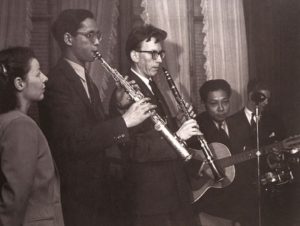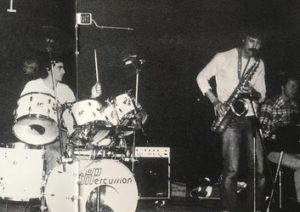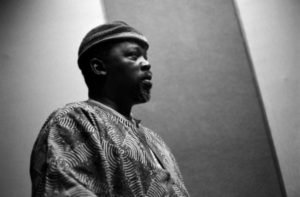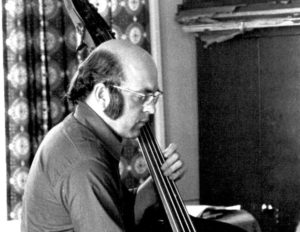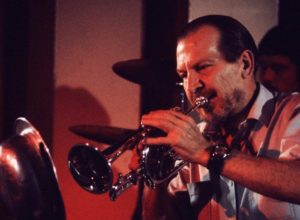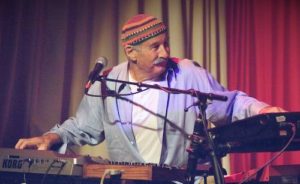Jazz in Belarus
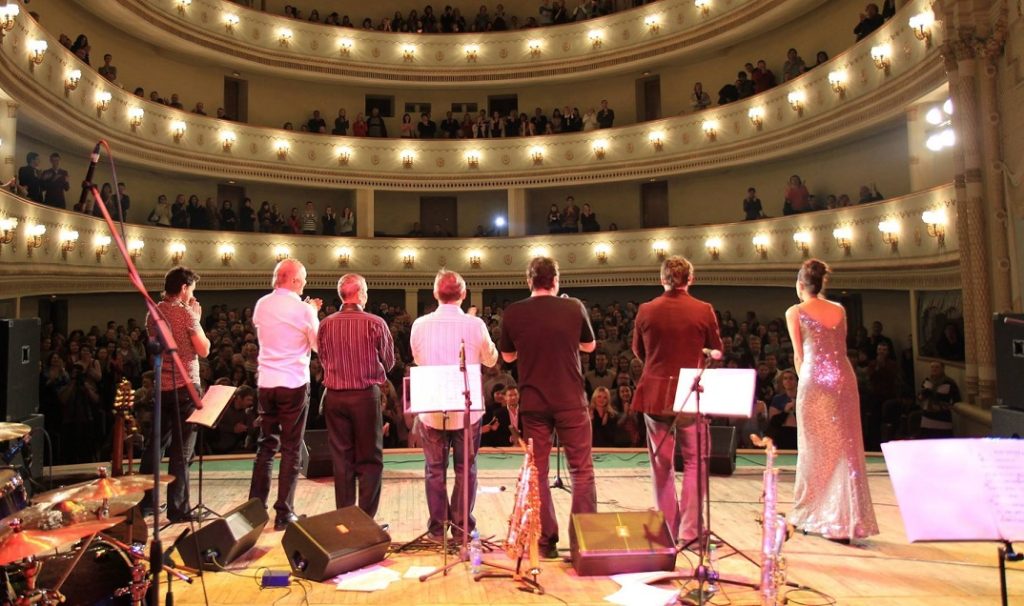
During the 20th Century, Belarus was successively ruled by Imperial Russia, German occupying powers and the Soviet Union. The country likes to trace its jazz origin story to the arrival in 1939 of the German-born, Polish-Jewish trumpeter Eddie Rosner, who escaped occupied Warsaw and settled in Białystok, which was then part of Belorussia. Rosner was already well known, and he formed a Big Band, which soon became the State Jazz Orchestra of the Belorussian Republic of the USSR, and which toured the Soviet Union. Rosner was promoted to running the Soviet State Jazz Orchestra, before falling into disfavour in the 1940s, and spending eight years in a Gulag.
Following Stalin’s death in 1953, there was something of a cultural thaw, and jazz was included in the repertoire of the Belorussian Radio Ensemble. The oldest jazz band which still performs today is the Dixieland group, the Renaissance Jazz Band, which played its first shows in 1977. The National Concert Orchestra of Belarus, led by Mikhail Finberg since its founding in the mid-1980s, has included a strong jazz element, and was instrumental in the success of a number of jazz festivals in Belarus over the years.
Since the country declared itself independent in 1991, it has developed an enthusiastic music scene, which includes jazz. Several bands began performing and recording in the early years of post-Soviet Belarus, and have gone on to achieve some international recognition. The repertoire of 7-piece a capella vocal group Camerata is too wide for them to be considered a jazz group, though they have been called the ‘Belorussian Manhattan Transfer’ and certainly have the technique to include jazz in their shows. Another band that has appeared at internaitonal jazz festivals is the folk-rock trio, Troitsa (meaning ‘Trinity’), who have been around since 1995, and released their debut self-titled album in 1998, perform on acoustic instruments and incorporate traditional folk elements, including occasional throat singing.
For a group that certainly do play jazz, and who have become the country’s leading jazz ensemble, we turn to Apple Tea, led by composer and bass guitarist, Igor Satsevich. The group released what is considered Belarus’s first jazz album Angry Girls in 1999. Since 2010, they have worked with Equilibrium Arts on ‘Jazz Bridge, a series of collaborative shows in Minsk pairing the band with visitors form USA and Britain, including Gregory Porter, Ian Shaw, Tessa Souter and Kevin Mahogany. Green Stream, led by bassist Vladimir Belov is another jazz group that has demonstrated staying power, since its formation in the late 1990s. From 1997 to 2009, groups could turn to Belarus’ print magazine, Jazz-Kvadrat, for CD and concert review, and the project continues online, providing a useful resource for this profile.
